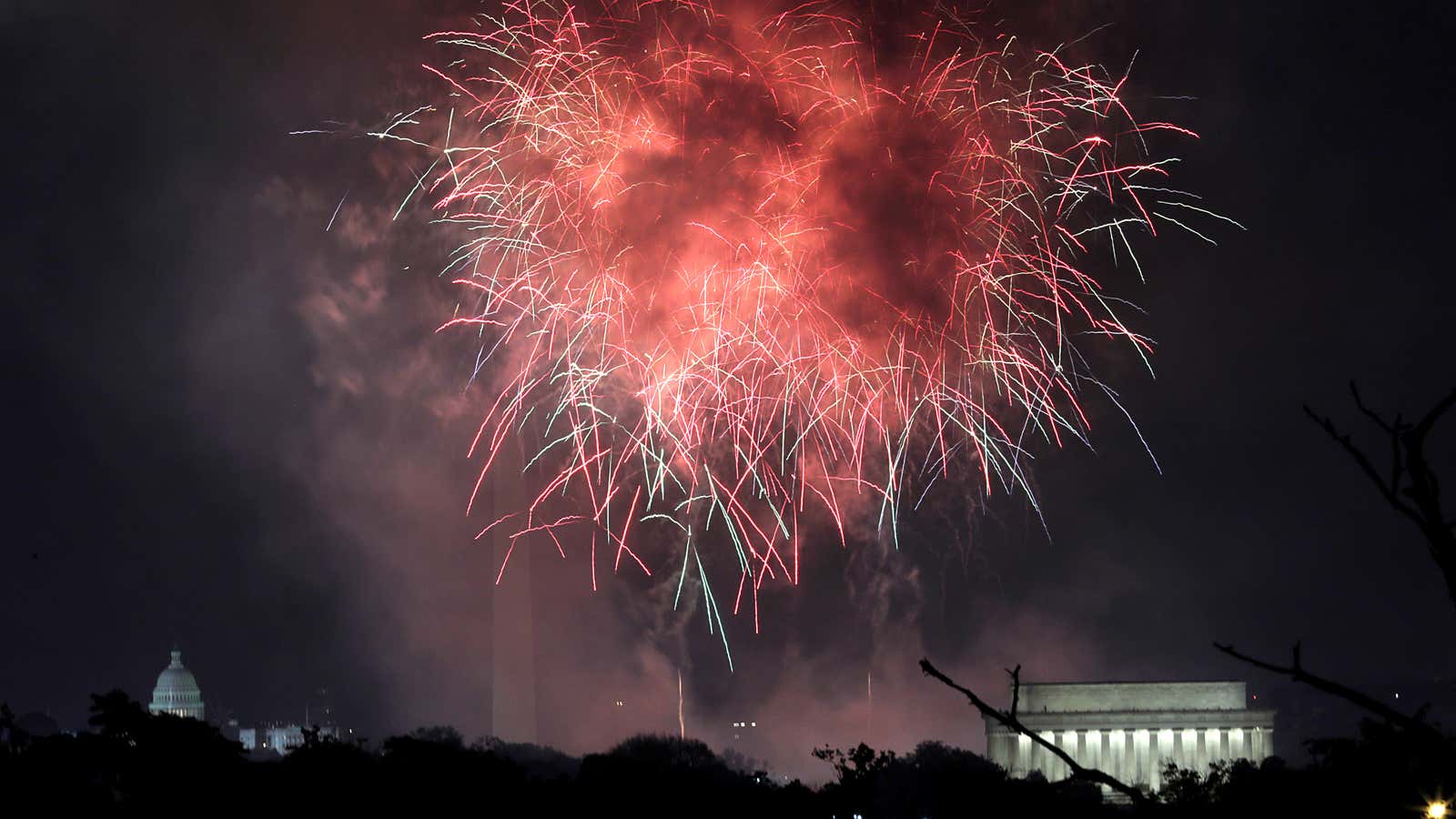Fireworks businesses across the US will be pleading with president Donald Trump today (June 20) to spare them from the proposed additional $300 billion worth of tariffs of 25% or “much higher” on Chinese goods, which he has threatened to kick into effect if his Chinese counterpart Xi Jinping refuses to meet at the G20 summit next week.
Fireworks and various pyrotechnics are included in the long list of Chinese goods that would be subject to the latest round of duties, which the Trump administration says is needed in the ongoing trade war against China. But representatives of the fireworks industry say that the tariffs would cripple them.
“Overwhelmingly, China is the top supplier of fireworks and pyrotechnics” to the US, according to testimony submitted by the National Fireworks Association ahead of the seven-day public hearing on the tariffs that began on Monday (June 17).
According to testimony from the American Pyrotechnics Association, 99% of backyard consumer fireworks, and 75% of professional display fireworks used in the US are imported from China. “China is the only source of fireworks,” it wrote, noting that “the economic impact of the proposed tariffs on the fireworks industry would be devastating.”
Fireworks businesses depend almost entirely on the month of July to sustain their businesses, according to the National Fireworks Association. For many distributors, 85% of annual revenue are made that month, while retailers make about 80% of their revenue in five days or fewer in that same month, the association said.
Since distributers and wholesalers typically prepare for July 4 and the summer season a year in advance, starting typically in August or September, next month’s celebrations won’t be affected by the potential tariffs, according to the National Fireworks Association. Still, the prospect of increased costs next year means that many businesses are considering raising prices this year to hedge against the possibility of tariffs. And with the industry operating on “razor-thin margins,” there is no room to absorb any of the costs, which would inevitably be passed on to American consumers, the association said.
Citing a letter by former president John Adams to his wife, in which Adams wrote that Independence Day “ought to be solemnized by pomp and parade, bonfires and illuminations,” Ohio-based company Phantom Fireworks wrote in its testimony that any tariff directly affects Americans’ access to fireworks, and has a “disproportionate and and discriminatory impact on lower income families.”
